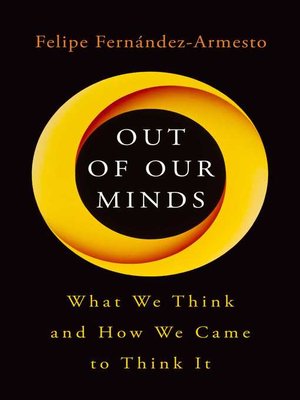
Sign up to save your library
With an OverDrive account, you can save your favorite libraries for at-a-glance information about availability. Find out more about OverDrive accounts.
Find this title in Libby, the library reading app by OverDrive.



Search for a digital library with this title
Title found at these libraries:
| Library Name | Distance |
|---|---|
| Loading... |
'Immensely learned and ambitious...seam-bursting eclecticism and polymathic brio... This is by any standards a significant book and its author deserves high praise.'
Literary Review
To imagine – to see that which is not there – is the startling ability that has fuelled human development and innovation through the centuries. As a species we stand alone in our remarkable capacity to refashion the world after the pictures in our minds.
Traversing the realms of science, politics, religion, culture, philosophy and history, Felipe Fernández-Armesto reveals the thrilling and disquieting tales of our imaginative leaps. Through groundbreaking insights in cognitive science, he explores how and why we have ideas in the first place, providing a tantalising glimpse into who we are and what we might yet accomplish. Fernández-Armesto shows that bad ideas are often more influential than good ones; that the oldest recoverable thoughts include some of the best; that ideas of Western origin often issued from exchanges with the wider world; and that the pace of innovative thinking is under threat.
Literary Review
To imagine – to see that which is not there – is the startling ability that has fuelled human development and innovation through the centuries. As a species we stand alone in our remarkable capacity to refashion the world after the pictures in our minds.
Traversing the realms of science, politics, religion, culture, philosophy and history, Felipe Fernández-Armesto reveals the thrilling and disquieting tales of our imaginative leaps. Through groundbreaking insights in cognitive science, he explores how and why we have ideas in the first place, providing a tantalising glimpse into who we are and what we might yet accomplish. Fernández-Armesto shows that bad ideas are often more influential than good ones; that the oldest recoverable thoughts include some of the best; that ideas of Western origin often issued from exchanges with the wider world; and that the pace of innovative thinking is under threat.







